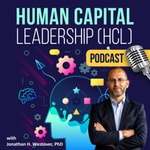Opinion Science – Details, episodes & analysis
Podcast details
Technical and general information from the podcast's RSS feed.

Opinion Science
Andy Luttrell
Frequency: 1 episode/13d. Total Eps: 154

Recent rankings
Latest chart positions across Apple Podcasts and Spotify rankings.
Apple Podcasts
🇬🇧 Great Britain - socialSciences
01/08/2025#37🇺🇸 USA - socialSciences
30/07/2025#75🇺🇸 USA - socialSciences
26/07/2025#81🇺🇸 USA - socialSciences
25/07/2025#58🇺🇸 USA - socialSciences
24/07/2025#55🇺🇸 USA - socialSciences
23/07/2025#84🇫🇷 France - socialSciences
21/07/2025#93🇫🇷 France - socialSciences
20/07/2025#82🇺🇸 USA - socialSciences
19/07/2025#88🇫🇷 France - socialSciences
19/07/2025#72
Spotify
No recent rankings available
Shared links between episodes and podcasts
Links found in episode descriptions and other podcasts that share them.
See all- https://www.zapsplat.com
3772 shares
- https://www.zapsplat.com/
3108 shares
- https://www.sessions.blue/
1003 shares
- https://twitter.com/OpinionSciPod
230 shares
- https://twitter.com/micah_psych
2 shares
RSS feed quality and score
Technical evaluation of the podcast's RSS feed quality and structure.
See allScore global : 58%
Publication history
Monthly episode publishing history over the past years.
#99 The Power of Random Roommates with Sarah Gaither and Analia Albuja
Season 6 · Episode 20
lundi 17 juin 2024 • Duration 51:07
Drs. Sarah Gaither and Analia Albuja study racial identity and how we can overcome racial biases. They just published an important new study on the effects of random roommate assignments on students’ ability to develop diverse social networks.
Our conversation focuses on two key research papers: Gaither & Sommers (2013); Albuja et al. (in press).
And if you haven’t listened to my episode on the Contact Hypothesis (Episode 44), it pairs well with this one!
For a transcript of this episode, visit this episode's page at: http://opinionsciencepodcast.com/episodes/
Learn more about Opinion Science at http://opinionsciencepodcast.com/ and follow @OpinionSciPod on Twitter.
#98: Deep Canvassing with Dave Fleischer
Season 6 · Episode 19
lundi 3 juin 2024 • Duration 01:09:35
Dave Fleischer is a political organizer who led the team that pioneered “deep canvassing,” which is a particularly effective form of face-to-face persuasion. It was developed on the ground, but when political scientists put it to a rigorous test, they found that these brief conversations with voters were having a lasting impact (Broockman & Kalla, 2016).
On this episode, Dave shares his background in political campaigns and walks us through an actual example of deep canvassing that made a real difference to someone’s attitudes toward transgender people.
If you want to know more, check out Dave’s Substack, where he’s written a lot of great articles about his team’s approach to persuasion.
Also, doing my due diligence, I’ll link to the movie I mentioned in the intro--“Salesman” (1969)--if you want to dive into classic American cinéma verité.
For a transcript of this episode, visit this episode's page at: http://opinionsciencepodcast.com/episodes/
Learn more about Opinion Science at http://opinionsciencepodcast.com/ and follow @OpinionSciPod on Twitter.
"...Ridiculous" Ep. 4: Behavioral Economics Goes Mainstream
Season 7 · Episode 4
lundi 26 février 2024 • Duration 41:52
Eventually, Behavioral Economics emerged as an influential perspective. It’s become mainstream in Economics, and it’s helped inform programs and policies that affect real people every day.
This is the fourth episode of a special series called: "They Thought We Were Ridiculous: The Unlikely Story of Behavioral Economics."
For more information, check out the Opinion Science webpage for this series: http://opinionsciencepodcast.com/episode/they-thought-we-were-ridiculous/
For a transcript of this episode, visit this episode's page at: http://opinionsciencepodcast.com/episodes/
Learn more about Opinion Science at http://opinionsciencepodcast.com/ and follow @OpinionSciPod on Twitter.
#34: Opinions of Ourselves with Ken DeMarree
Season 2 · Episode 14
lundi 29 mars 2021 • Duration 47:41
Ken DeMarree studies how opinion science applies how we see ourselves. He’s an associate professor of psychology at the University at Buffalo. In our conversation, we talk about how opinion science can be used to understand things like self-esteem, how people sometimes desire opinions they currently disagree with, and how some people just tend to be pretty confident in their views.
Things we mention in this episode:
- California’s Self-Esteem Task Force (Guardian; NYT; The Cut)
- The psychology of strong opinions can help us understand how people see themselves (DeMarree et al., 2007)
- More “accessible” self-esteem is more durable and impactful (DeMarree et al., 2010)
- Seeing yourself in both positive and negative ways makes your self-esteem more susceptible to influence (DeMarree et al., 2011)
- When we want an opinion we don’t already have, it makes us conflicted (DeMarree et al., 2014; 2017)
- Some people just tend to be more confident in their views than others (DeMarree et al., 2020)
Check out my new audio course on Knowable: "The Science of Persuasion."
For a transcript of this episode, visit: http://opinionsciencepodcast.com/episode/opinions-of-ourselves-with-ken-demarree/
Learn more about Opinion Science at http://opinionsciencepodcast.com/ and follow @OpinionSciPod on Twitter.
For a transcript of this episode, visit this episode's page at: http://opinionsciencepodcast.com/episodes/
Learn more about Opinion Science at http://opinionsciencepodcast.com/ and follow @OpinionSciPod on Twitter.
#33: Liking What Helps You with David Melnikoff
Season 2 · Episode 13
lundi 15 mars 2021 • Duration 48:54
David Melnikoff studies how our goals affect how we feel about things. When stuff helps us reach a goal, we like it…even if it’s not the kind of thing we’d ordinarily like. In our conversation, we talk about what psychologists mean when they talk about people’s “attitudes,” how goals can affect those attitudes, and why all of this means that people can sometimes come to like immoral people.
Things that come up in this episode:
- What is an “attitude”? (For more on this concept, check out this webpage.)
- “Instrumentality” and “action valence” affect how we feel about someone in the moment (Melnikoff, Lambert, & Bargh, 2019)
- Morality isn’t always a valued quality in other people (Melnikoff & Bailey, 2018)
Check out my new audio course on Knowable: "The Science of Persuasion."
For a transcript of this episode, visit: http://opinionsciencepodcast.com/episode/liking-what-helps-you-with-david-melnikoff/
Learn more about Opinion Science at http://opinionsciencepodcast.com/ and follow @OpinionSciPod on Twitter.
For a transcript of this episode, visit this episode's page at: http://opinionsciencepodcast.com/episodes/
Learn more about Opinion Science at http://opinionsciencepodcast.com/ and follow @OpinionSciPod on Twitter.
#32: Moralizing and Attention with Ana Gantman
Season 2 · Episode 12
lundi 1 mars 2021 • Duration 45:43
Dr. Ana Gantman studies how people process moral stuff. She’s an assistant professor at Brooklyn College, and she finds that our attention is often drawn more quickly to morally relevant stimuli in our environment. More recently, she’s been looking into how our moral judgments collide with bureaucracy and how we can use moral psychology to address issues surrounding consent and sexual assault.
Things we mention in this episode:
- The “moral pop-out” effect where moral stuff grabs our attention (Gantman & Van Bavel, 2014; Brady, Gantman, & Van Bavel, 2020)
- Moral pop-out seems to work like a motivational state because it goes away when needs for justice are satisfied (Gantman & Van Bavel, 2016)
- Using EEG to study the time course of moral perception (Gantman et al., 2020)
- The books The Utopia of Rules and Bullshit Jobs by David Graeber
- How “phantom rules” can be selectively enforced when someone’s violated other social norms.
- Taking “consent pledges” before a party can get college students to moralize consent (The Daily Princetonian)
Check out my new audio course on Knowable: "The Science of Persuasion."
For a transcript of this episode, visit: http://opinionsciencepodcast.com/episode/moralizing-and-attention-with-ana-gantman/
Learn more about Opinion Science at http://opinionsciencepodcast.com/ and follow @OpinionSciPod on Twitter.
For a transcript of this episode, visit this episode's page at: http://opinionsciencepodcast.com/episodes/
Learn more about Opinion Science at http://opinionsciencepodcast.com/ and follow @OpinionSciPod on Twitter.
#31: The Language of Opinion with Matt Rocklage
Season 2 · Episode 11
lundi 15 février 2021 • Duration 50:48
Dr. Matt Rocklage studies the words we use to express opinions. He’s an assistant professor of marketing the University of Massachusetts-Boston. In our conversation, Matt talks about the Evaluative Lexicon, which is a tool he developed to quantify the language of opinion. Take an online review, feed it into the Evaluative Lexicon, and it’ll tell you how much the person liked or disliked the product and how much their emotions played a role in their opinion. His research with this tool has shown just how potent emotion can be and how we should approach studying language in psychology.
Things we mention in this episode:
- The “Evaluative Lexicon” (Rocklage & Razio, 2015; Rocklage et al. 2018); you can learn more at: http://www.evaluativelexicon.com/
- Emotion-based opinions tend to be stronger (Rocklage & Fazio, 2016; 2018; Rocklage & Luttrell, in press)
- The role of emotion in consumer reviews (Rocklage & Fazio, 2020)
- People turn to emotional language more when trying to be persuasive (Rocklage, Rucker, & Nordgren, 2018)
Check out my new audio course on Knowable: "The Science of Persuasion."
For a transcript of this episode, visit: http://opinionsciencepodcast.com/episode/language-of-opinion-with-matt-rocklage/
Learn more about Opinion Science at http://opinionsciencepodcast.com/ and follow @OpinionSciPod on Twitter.
For a transcript of this episode, visit this episode's page at: http://opinionsciencepodcast.com/episodes/
Learn more about Opinion Science at http://opinionsciencepodcast.com/ and follow @OpinionSciPod on Twitter.
#30: "Us vs. Them" with Jay Van Bavel
Season 2 · Episode 10
lundi 1 février 2021 • Duration 31:01
Jay Van Bavel studies how our social identities shape the way we see ourselves and the people around us. He’s an associate professor of psychology at New York University. In an upcoming book, he and his colleague, Dominic Packer, present social identity theory. It’s a classic theory in social psychology that has inspired tons of research and continues to give insight into the modern world. At its root, it’s the idea that people often adopt an “us vs. them” mindset, which fuels lots of conflict between groups. In our conversation, Jay shares the basic tenets and controversies surrounding social identity theory and the direction his own research lab is going.
For a quick overview of Social Identity Theory, featuring Dr. Van Bavel, you can check out this YouTube video [13:36] I made.
Things we mention in this episode:
- Dominic Packer’s research on identity and dissent.
- The pioneering work of John Turner and Henri Tajfel and the development of social identity theory.
- Marilynn Brewer’s “Optimal Distinctiveness Theory”
- Jay’s research on how social identities affect our thought and behavior in domains like politics (e.g., Van Bavel & Pereira, 2018) and social media (Brady, Crockett, & Van Bavel, 2020).
- According to Facebook’s global creative director, Andrew Keller, the average person scrolls through 300 feet of mobile content a day.
- Lilliana Mason’s book (Uncivil Agreement) applying social identity to politics.
Check out my new audio course on Knowable: "The Science of Persuasion."
For a transcript of this episode, visit: http://opinionsciencepodcast.com/episode/social-identities-with-jay-van-bavel/
Learn more about Opinion Science at http://opinionsciencepodcast.com/ and follow @OpinionSciPod on Twitter.
For a transcript of this episode, visit this episode's page at: http://opinionsciencepodcast.com/episodes/
Learn more about Opinion Science at http://opinionsciencepodcast.com/ and follow @OpinionSciPod on Twitter.
#29: Hype with Michael F. Schein
Season 2 · Episode 9
lundi 18 janvier 2021 • Duration 54:47
Michael F. Schein is a writer, speaker, and founder of the marketing agency, MicroFame Media. In his new book, The Hype Handbook, he explores the antics of historically successful “hype artists”—cult leaders, music promoters, propagandists, etc.—to extract 12 common strategies that get people excited about and committed to new ideas.
In our conversation, we talk about how “hype” is or is not the same as “persuasion,” how much we’re able to learn from stories of historical hype artists, and the ethical and practical limits of hype.
Check out my new audio course on Knowable: "The Science of Persuasion."
For a transcript of this episode, visit: http://opinionsciencepodcast.com/episode/hype-with-michael-f-schein/
Learn more about Opinion Science at http://opinionsciencepodcast.com/ and follow @OpinionSciPod on Twitter.
For a transcript of this episode, visit this episode's page at: http://opinionsciencepodcast.com/episodes/
Learn more about Opinion Science at http://opinionsciencepodcast.com/ and follow @OpinionSciPod on Twitter.
#28: When Money Buys Happiness with Lara Aknin
Season 2 · Episode 8
lundi 4 janvier 2021 • Duration 42:55
Lara Aknin studies what makes people happy. In particular, she’s spent a lot of time looking at how being generous can improve one’s well-being. She is an associate professor of social psychology at Simon Fraser University, and you heard her a couple weeks ago on Opinion Science. Her work was featured on our episode on gift-giving, but she has so much interesting work that it seemed setting aside a whole episode for our entire conversation.
Things that come up in this episode:
- College students were happier when spending money on others vs. on themselves (Dunn, Aknin, & Norton, 2008; for a replication see Aknin et al., 2020)
- The positive effects of spending on others extends around the world (Aknin et al., 2013), in small rural societies (Aknin et al., 2015; Aime et al., 2017), with children (Aknin, Hamlin, & Dunn, 2012), and among ex-offenders (Aknin et al., 2018).
- Giver-focused gifts promoted greater relationship closeness than recipient-focused gifts (Aknin & Human, 2015)
- For reviews of the effects of “prosocial spending,” see Aknin et al. (2018) and Dunn et al. (2020)
Check out my new audio course on Knowable: "The Science of Persuasion."
For a transcript of this episode, visit: http://opinionsciencepodcast.com/episode/when-money-buys-happiness-with-lara-aknin/
Learn more about Opinion Science at http://opinionsciencepodcast.com/ and follow @OpinionSciPod on Twitter.
For a transcript of this episode, visit this episode's page at: http://opinionsciencepodcast.com/episodes/
Learn more about Opinion Science at http://opinionsciencepodcast.com/ and follow @OpinionSciPod on Twitter.









